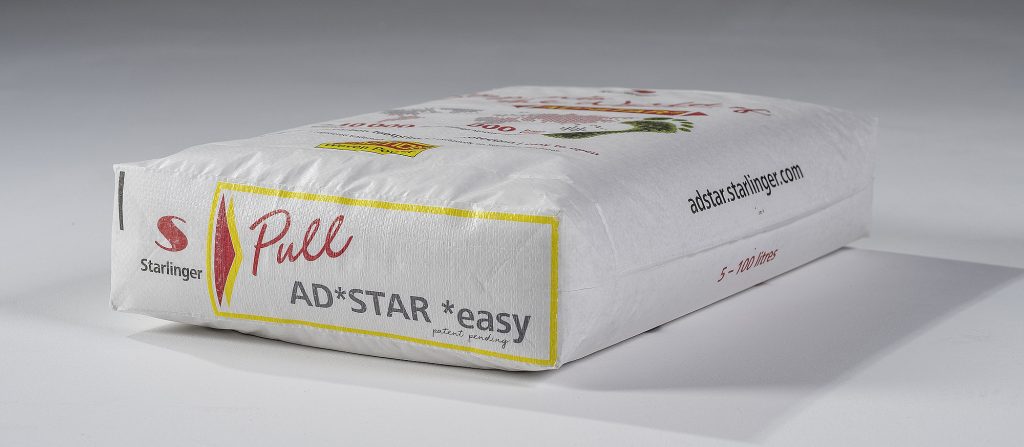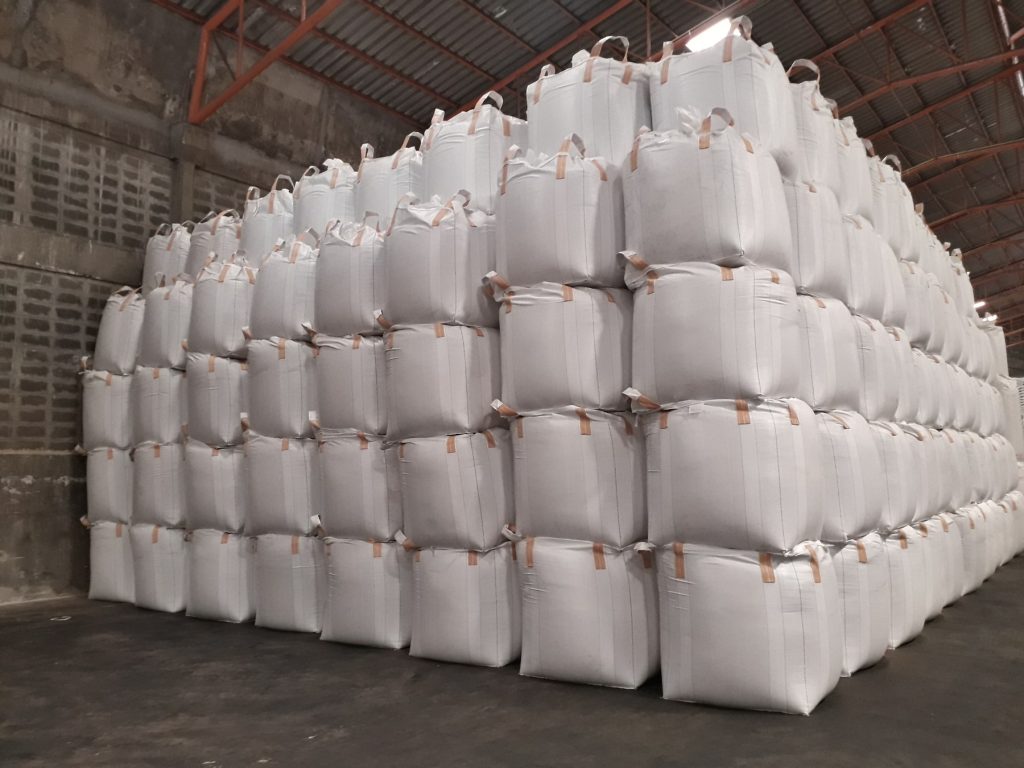Industrial packaging bags are essential in safeguarding products during storage, transport, and distribution. These bags come in various materials, sizes, and designs, tailored to meet the specific needs of different industries. This blog explores the different types of industrial packaging bags, their unique features, and how they serve diverse industries. Understanding these bags and their best uses can significantly impact efficiency, cost-effectiveness, and environmental sustainability in businesses.
Understanding Industrial Packaging Bags
Before diving into the specifics of various types of industrial packaging bags, it’s important to understand the role they play. These bags are used in numerous industries to package raw materials, finished goods, and everything in between. Depending on the material, design, and purpose, these bags ensure that products are safely transported, stored, and protected from environmental factors such as moisture, dust, and contamination.
Packaging bags are made from a variety of materials, each offering distinct advantages. Some are durable and strong, while others prioritize flexibility and lightweight characteristics. Let’s explore the types of industrial packaging bags and how each one is best used in different industries.
Types of Industrial Packaging Bags
Explores the various materials and designs of packaging bags commonly used in different industries. Each type offers unique benefits tailored to specific packaging needs, from durability to moisture resistance.
1. Polyethylene (PE) Bags
Polyethylene bags are one of the most commonly used types of industrial packaging bags. They are made from a type of plastic that is flexible, durable, and resistant to moisture. Polyethylene bags can be produced in various thicknesses, making them suitable for different packaging needs.
Best Uses:
- Food Industry: PE bags are often used for packaging food items due to their resistance to moisture and ability to preserve the freshness of the product.
- Pharmaceuticals: PE bags are frequently used in the pharmaceutical industry to package bulk medicinal products, ensuring they remain free from contamination.
- Consumer Goods: These bags are also used for packaging everyday consumer products like clothing, electronics, and toiletries.
2. Woven Polypropylene (WPP) Bags
Woven polypropylene bags are made from durable, woven plastic fibers. These bags are known for their strength and load-bearing capacity, making them ideal for heavy-duty applications. They are commonly used in industries where the packaging needs to carry heavy or bulk products.
Best Uses:
- Agriculture: WPP bags are widely used in the agriculture industry for packaging grains, seeds, fertilizers, and other bulk agricultural products. Their robust design ensures that the contents are protected during storage and transport.
- Chemicals and Fertilizers: Woven polypropylene bags are perfect for packaging chemicals and fertilizers due to their strength and resistance to harsh environmental conditions.
- Construction: These bags are also used to carry construction materials such as cement, sand, and gravel, where strength and durability are crucial.
3. Ad Star Bags
Ad Star bags are a specialized form of industrial packaging bags made from woven polypropylene fabric. These bags are designed with a unique construction method that ensures high strength and puncture resistance, making them ideal for transporting heavy and bulk materials.

Best Uses:
- Cement and Building Materials: Ad Star bags are commonly used in the packaging of cement, concrete, and other heavy building materials. Their high strength makes them ideal for the weight and rough handling often associated with these materials.
- Agricultural Products: Similar to woven polypropylene bags, Ad Star bags are used to package agricultural products like animal feed, grains, and fertilizers, offering protection against moisture and contamination.
4. BOPP Bags (Biaxially Oriented Polypropylene Bags)
BOPP bags are made from polypropylene that has been processed through a biaxial orientation process, resulting in a film that is stronger and more durable than standard polypropylene. These bags are known for their excellent clarity, vibrant printing capabilities, and high strength.
Best Uses:
- Retail Packaging: BOPP bags are frequently used in the retail packaging of food items, such as rice, sugar, and snacks. Their ability to display high-quality printed designs makes them ideal for consumer-facing products.
- Pet Food: These bags are also commonly used for packaging pet food, where both durability and eye-catching branding are essential for marketability.
5. Jumbo Bags (FIBC – Flexible Intermediate Bulk Containers)
Jumbo bags, also known as FIBCs, are large industrial bags designed to carry bulk products. These bags are typically made from woven polypropylene and can carry several tons of material. They are most commonly used in industries that require the storage or transport of bulk goods.
Best Uses:
- Construction and Mining: Jumbo bags are used in the construction and mining industries to transport sand, gravel, and other materials. Their large capacity makes them perfect for handling bulk items efficiently.
- Agriculture: Jumbo bags are used for storing and transporting large quantities of agricultural products like grains, fertilizers, and feed.
6. Vacuum-Sealed Bags
Vacuum-sealed bags are used primarily in the food and pharmaceutical industries. They work by removing air from the bag to create a vacuum-sealed environment, which helps preserve the contents for extended periods. The absence of air reduces the chances of spoilage, bacterial growth, and degradation.
Best Uses:
- Food Preservation: Vacuum-sealed bags are popular in the food industry, especially for meat, cheese, and perishable goods. They help maintain the freshness of food by preventing oxidation and contamination.
- Medical Supplies: These bags are also used in the medical and pharmaceutical industries to protect sensitive products, such as sterile medical devices and drugs.
7. Paper Bags
Paper bags are a more traditional form of industrial packaging. These bags are made from durable, recycled paper and are commonly used when environmental sustainability is a top priority.
Best Uses:
- Retail Industry: Paper bags are widely used in the retail industry for packaging consumer goods, especially in eco-conscious businesses. They are used for packaging everything from clothing to small household items.
- Food Packaging: Paper bags are often used in the food industry, especially for items like flour, sugar, and grains. They are a great option for businesses looking to offer biodegradable packaging solutions.
Benefits of Choosing the Right Industrial Packaging Bag
Choosing the appropriate industrial packaging bag is essential for maintaining the quality and safety of products. Different bags offer distinct advantages based on factors like strength, moisture resistance, environmental impact, and branding. By selecting the correct packaging type, companies can reduce waste, improve product shelf life, and enhance the overall consumer experience.
Key Considerations When Selecting an Industrial Packaging Bag
- Material Strength: Some industries, such as construction and agriculture, require strong, durable bags that can handle heavy loads.
- Moisture Protection: For products susceptible to moisture, like food or pharmaceuticals, packaging bags with moisture-resistant properties are crucial.
- Environmental Impact: Eco-friendly packaging materials, such as paper or biodegradable plastic bags, are becoming increasingly important to environmentally-conscious companies.
- Branding: Packaging bags with high-quality print options, such as BOPP bags, are ideal for products requiring consumer-facing branding.
Conclusion
Industrial packaging bags are indispensable in various industries for ensuring safe, efficient, and sustainable packaging solutions. Understanding the different types of industrial packaging bags and their best uses helps businesses optimize their packaging strategy. Whether you’re in the food industry, construction, or pharmaceuticals, selecting the right bag type can improve product protection, storage, and transportation while also enhancing your brand’s reputation for quality and sustainability. By choosing wisely, companies can achieve better operational efficiency, cost savings, and customer satisfaction.
